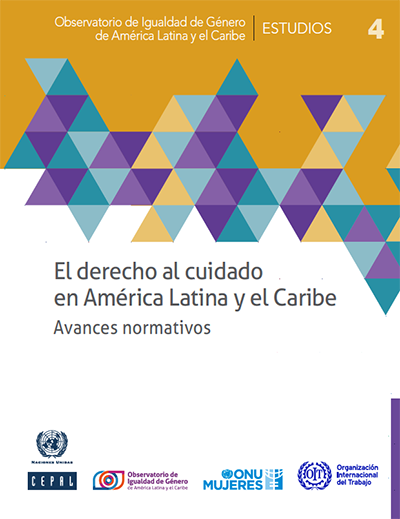The human right to care is fundamental to the sustainability of life and the planet and is part of the human rights enjoyed by all people, recognized in international covenants and treaties. As the Buenos Aires Commitment (2022) states, the right to care is based on the principles of equality, universality, and social and gender co-responsibility. This right, which is also based on non-discrimination, progressiveness, and interdependence, recognizes the value of care work and guarantees the rights of those who need care and those who provide care, as well as the right to exercise self-care. This implies moving toward a fair social organization of care and the achievement of gender equality.
This edition of the "Gender Equality Observatory for Latin America and the Caribbean. Studies" offers an update on international standards for the human right to care and its connection with the Regional Gender Agenda. It includes constitutional norms, national laws and policies on comprehensive care systems, standards for measuring time use, and the regulation of care leave in Latin America and the Caribbean. This report draws on information from the Gender Equality Observatory for Latin America and the Caribbean and the ILO Global Portal on Care Policies.
Read the full report here: https://www.cepal.org/es/publicaciones/82267-derecho-al-cuidado-america-latina-caribe-avances-normativos





